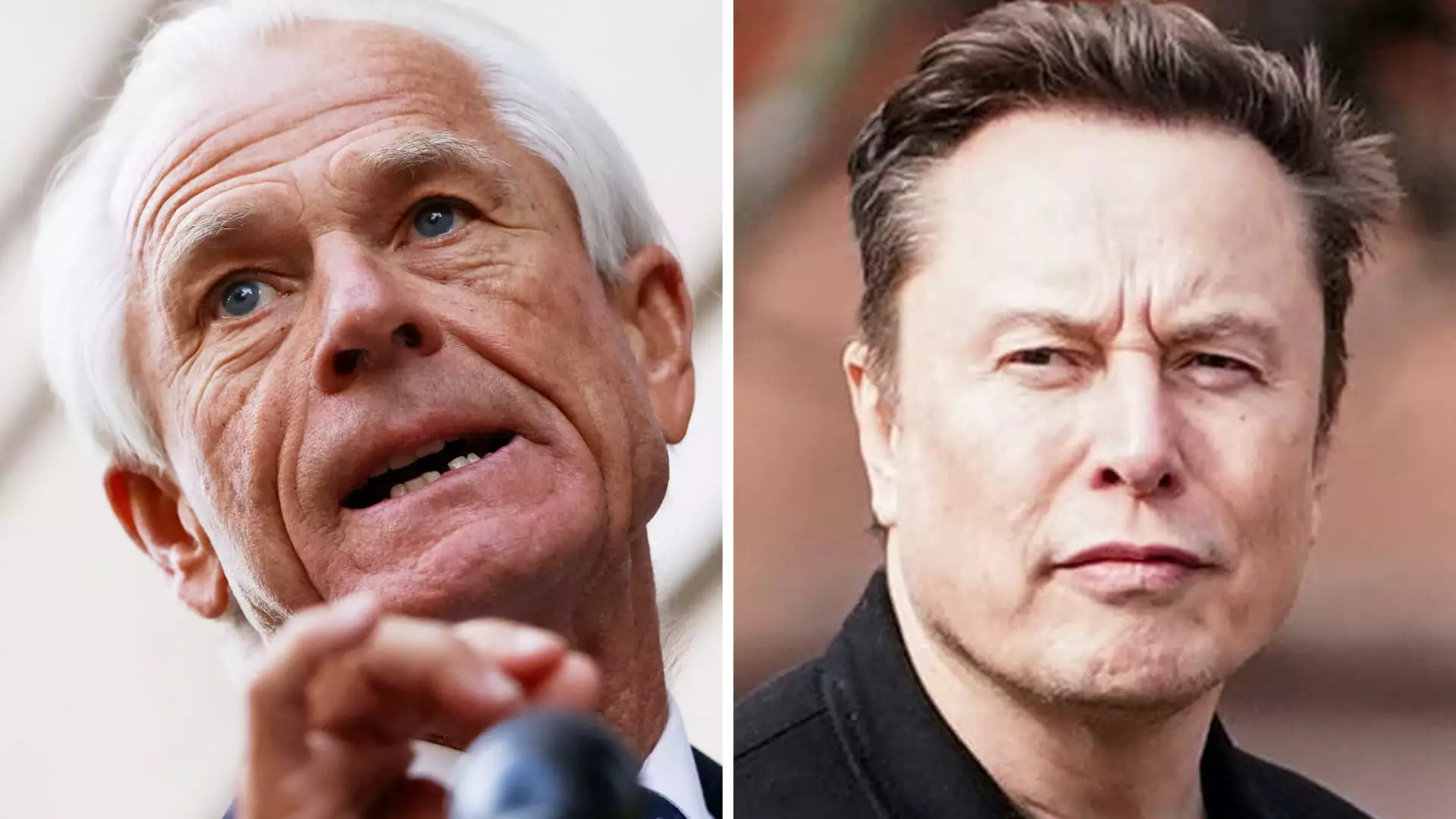In recent events, the exchange between trade aide Peter Navarro and tech billionaire Elon Musk drew attention, but not for reasons one might think. It seems both figures occupy the same office space yet navigate drastically different economic ideologies—one rooted deeply in traditional manufacturing and protectionism, the other in a vision fueled by innovation and globalization. While Navarro attempted to downplay any conflict between him and Musk after Musk’s harsh comments, one must question whether this facade of cordiality can withstand the pressures of their contrasting perspectives.
Navarro’s comments on “Meet the Press” paint a picture of an uneasy alliance, where Musk’s vision of an economy driven by advanced technology and fewer trade barriers is at odds with Navarro’s staunch protectionism. The way Navarro dismisses Musk’s status as a mere “car assembler” reveals a fundamental misunderstanding of the evolving landscape of manufacturing. In a world where technology drives the automotive industry, reducing Musk to a label that downplays his contribution is frankly anachronistic.
Misunderstood Contributions
Navarro insists that “we want the tires made in Akron,” positioning himself squarely in the camp that heralds domestic production. But what does this really mean in the context of a global economy? Musk represents a newer form of industrial evolution; Tesla’s unique assembly model includes a global supply chain, one that fosters resilience and flexibility. Yet, Navarro’s defense of traditional manufacturing roles lays bare an underlying rigidity in his approach.
This idea that American innovation should strictly adhere to nostalgic notions of what manufacturing “should” look like is not only outdated—it’s dangerous. Should we really be limiting the scope of what constitutes American manufacturing, particularly when technology leads the charge in redefining these boundaries? To suggest that a company like Tesla—is less valid because it doesn’t conform to the older mold of making everything from scratch is short-sighted.
The Fallout from Diverging Views
The fallout from this ideological clash has reverberated throughout various platforms, particularly as Musk, undeterred by Navarro’s clumsy defenses, took to social media to belittle Navarro’s intelligence. The assertions that Tesla boasts “the most American-made cars” go against Navarro’s call for manufacturing to return to traditional hubs like Flint and Saginaw. Instead of collaborating towards common goals, this conflict risks further splintering an already divided economic landscape.
Musk’s advocacy for a “zero tariff situation” underlines a fundamental economic principle that Navarro appears to overlook: trade can benefit all parties involved. Forcing a return to an industrial structure that prevailed decades ago is akin to putting a lid on progress. The global marketplace is not a contentious battlefield but rather a collaborative platform that fuels innovation and, ultimately, the American economy.
Innovation versus Obsolescence
The stark contrast in perspectives, as illustrated by Navarro’s defense of Trump’s tariff policies, reveals an inherent tension that could undermine the future of American labor. Navarro’s assertion that the administration’s current strategy will yield “90 deals in 90 days” seems more like a populist slogan than a genuine economic forecast. Could it be that the hardline stance on tariffs and trade reveals a fear of what the new economy heralds?
As America stands on the precipice of major change, the nation deserves forward-thinking leaders willing to embrace innovation rather than cling to outdated practices. The Trump administration’s reliance on aides like Navarro, with an affixed gaze on the past, demonstrates a reluctance to adapt to the inevitable change brought on by technology and global cooperation.
It is essential to recognize that the discord between Navarro and Musk isn’t merely personal; it embodies a larger struggle for America’s economic identity. The future demands collaboration and an open-minded vision, and the question becomes: Will leaders adapt, or will they succumb to the allure of nostalgia, risking the very foundations of economic progress?


Leave a Reply